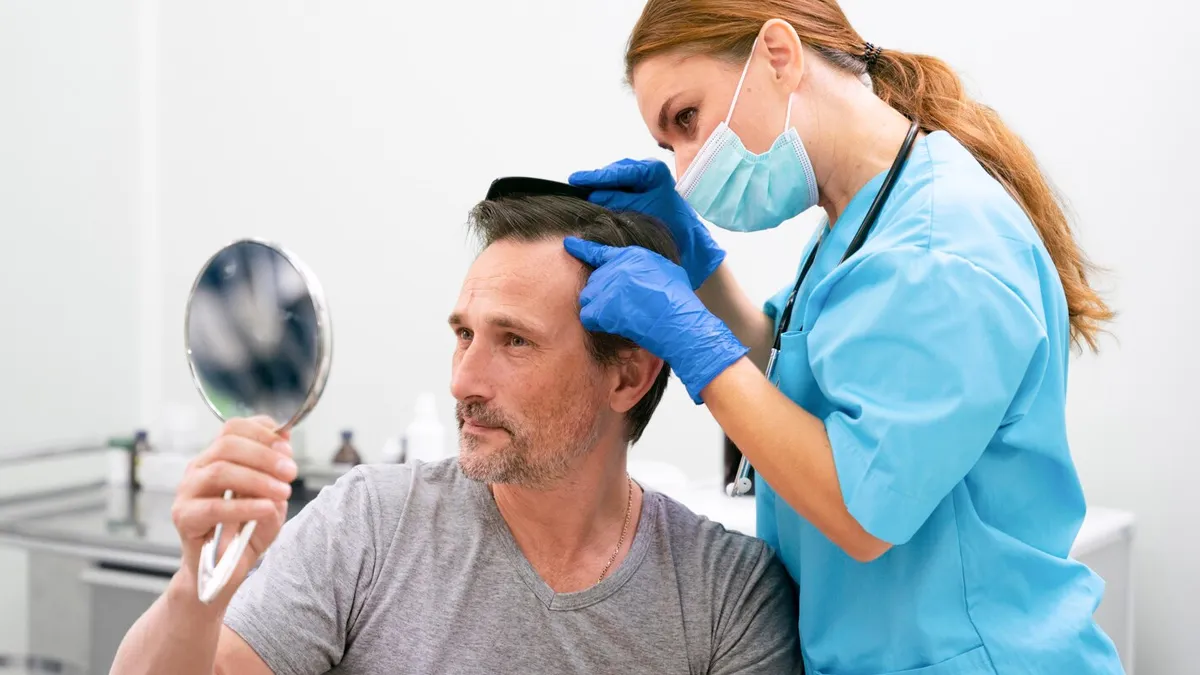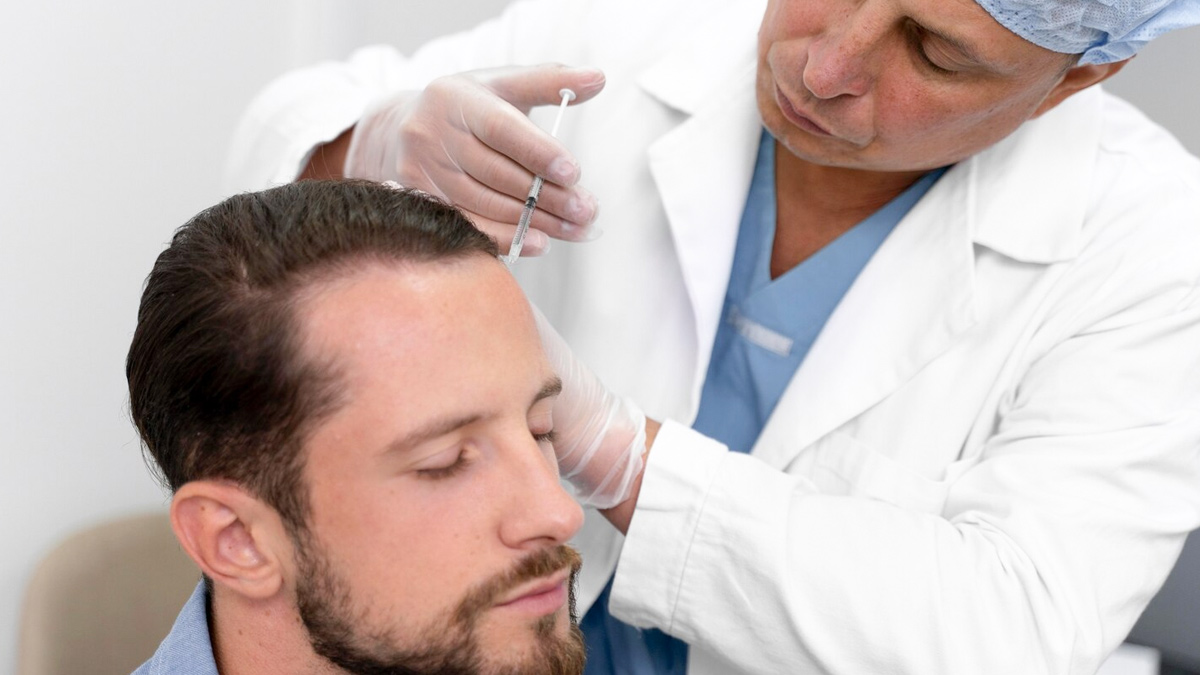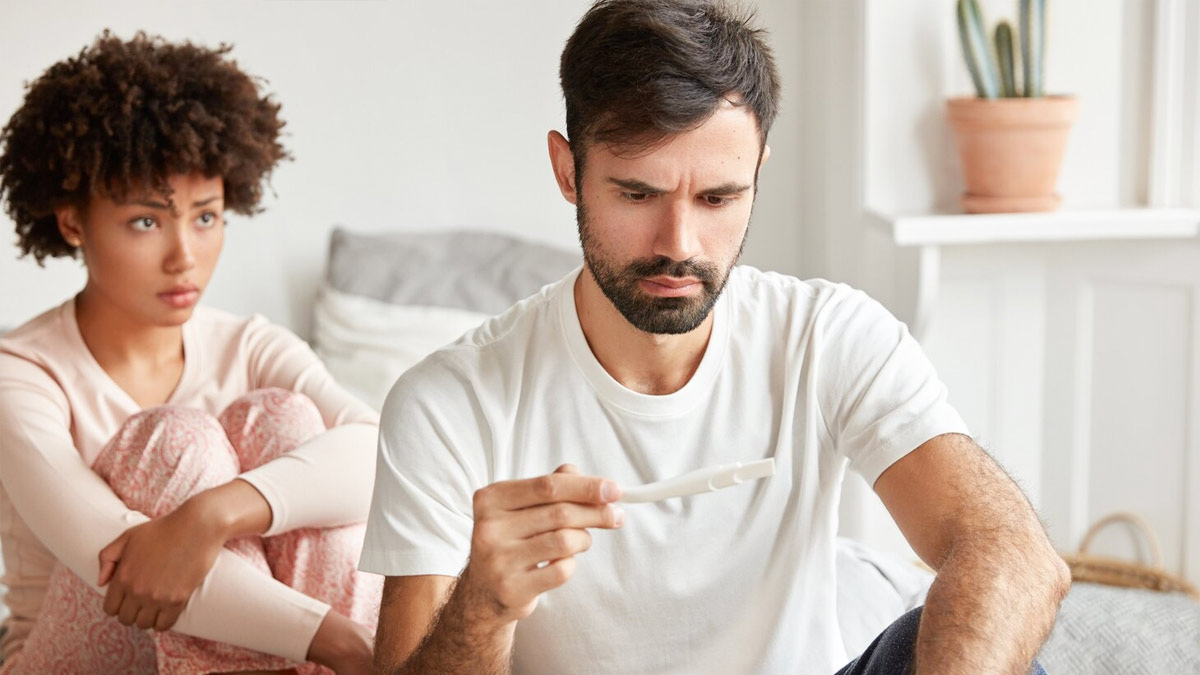
Men dealing with male pattern baldness often turn to medications or procedures to slow hair loss and regrow hair. But if you’re planning to start a family, it’s natural to wonder whether these treatments could affect sperm health or hormone levels. Fertility specialists explain how popular hair loss therapies interact with male reproductive health and what safer options exist.
Table of Content:-
Do Hair Loss Medications Affect Sperm Or Hormones?

“Finasteride is one of the most common medications for hair loss treatment and is taken to prevent hair loss in males suffering from male pattern baldness,” says Dr Ankush Raut, Infertility Specialist at Apollo Fertility, Borivali, Mumbai.
He points to research published by the National Library of Medicine and the Georgetown Medical Review showing that finasteride can reduce semen volume, sperm concentration, and sperm motility in some men.
Also Read: From Reduced Libido To Decreased Body Hair: Common Symptoms Of Hypogonadism In Men
Dr Kalyani Shrimali, Clinical Director and Fertility Specialist, Nova IVF Fertility, Indore, adds that these changes are typically temporary: “The good news is that these changes are usually reversible. If you stop the medication, sperm parameters typically return to normal.”
Interestingly, finasteride does not lower testosterone. “Total testosterone may slightly increase because less of it is being converted into DHT [dihydrotestosterone],” notes Dr Shrimali. However, some users still report reduced libido or changes in sexual performance.
A 2017 review published in the Impacts of Medications on Male Fertility found that finasteride and dutasteride, used for prostate problems and hair loss, lower the hormone DHT by about 90% while keeping testosterone stable. Some men may experience reduced libido, sexual side effects, and a drop in sperm count or motility.
These changes rarely affect fertility in men with normal sperm, but those with low counts could see a sharp decline.
However, no research has yet confirmed effects on fertility at the doses used for hair loss.
Topical options work differentlyMinoxidil, for example, boosts blood flow to hair follicles rather than altering hormone levels. Studies cited by Dr Raut confirm that “minoxidil does not affect the hormones or sperm quality.”
Are Topical Treatments Safer For Fertility?

Because topical medications stay largely within the scalp, they have “minimal hormonal effects, making them safer for male fertility,” Dr Shrimali explains. Oral drugs, on the other hand, circulate through the bloodstream and “can sometimes influence sperm production in certain men,” though evidence of long-term fertility problems is limited.
Balancing Hair Restoration Goals With Fertility
For men planning a pregnancy, timing and monitoring are key. “Higher doses and longer use of hair loss treatment medications are more likely to impact sperm quality and hormone levels. It would be recommended to avoid them as a long-term treatment option,” advises Dr Raut.
Dr Shrimali recommends a proactive approach: “It’s advisable to do a baseline semen analysis before starting treatment and track changes over time. Ideally, dermatologists and fertility specialists should work together to tailor a treatment plan that balances hair restoration with reproductive goals.”
She also points to alternatives that avoid hormonal disruption, such as:
- PRP (platelet-rich plasma) therapy
- Hair exosomes (still experimental)
- Hair transplant surgery
These local or procedural options “can be used without affecting semen health,” she says.
Also Read: Is Male Baldness And Fertility Linked? Find Out Here
Safer Choices For Men Trying To Conceive

Couples actively trying to conceive may want to avoid oral finasteride and other hormone-modifying medications. “Men can opt for alternative hair loss treatment strategies,” says Dr Raut, recommending topical minoxidil, caffeine-based shampoos, or plant oils like pumpkin seed oil.
Low-level laser therapy (LLLT), including laser caps or combs, is another non-hormonal option that “stimulates blood flow to hair follicles and promotes hair growth without hormonal effects, making them a safe alternative,” he adds.
Dr Shrimali underscores the importance of lifestyle: a nutrient-rich diet, adequate biotin, and stress management all support both hair and reproductive health.
Conclusion
While not every man will experience fertility issues, oral finasteride can affect sperm quality in some cases. Most changes reverse after stopping the drug, but if fatherhood is a near-term goal, topical treatments and non-hormonal procedures are safer bets. For personalised guidance, both doctors stress the value of consulting a dermatologist and a fertility specialist before beginning or continuing hair loss therapy.
Also watch this video
How we keep this article up to date:
We work with experts and keep a close eye on the latest in health and wellness. Whenever there is a new research or helpful information, we update our articles with accurate and useful advice.
Current Version
Sep 15, 2025 15:42 IST
Published By : Tenzin Chodon